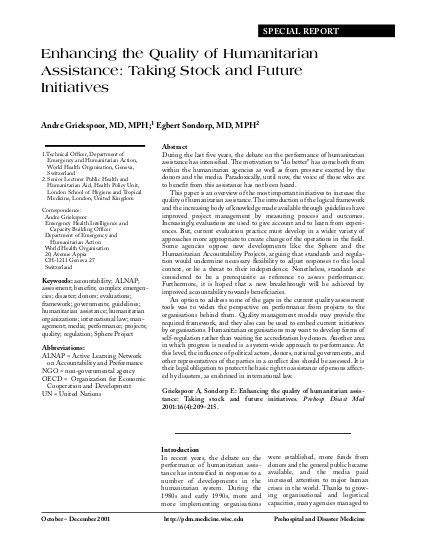
During the last five years, the debate on the performance of humanitarian assistance has intensified. The motivation to “do better” has come both from within the humanitarian agencies as well as from pressure exerted by the donors and the media. Paradoxically, until now, the voice of those who are to benefit from this assistance has not been heard. This paper is an overview of the most important initiatives to increase the quality of humanitarian assistance. The introduction of the logical framework and the increasing body of knowledge made available through guidelines have improved project management by measuring process and outcomes. Increasingly, evaluations are used to give account and to learn from experi- ences. But, current evaluation practice must develop in a wider variety of approaches more appropriate to create change of the operations in the field. Some agencies oppose new developments like the Sphere and the Humanitarian Accountability Projects, arguing that standards and regula- tion would undermine necessary flexibility to adjust responses to the local context, or be a threat to their independence. Nonetheless, standards are considered to be a prerequisite as reference to assess performance. Furthermore, it is hoped that a new breakthrough will be achieved by improved accountability towards beneficiaries.